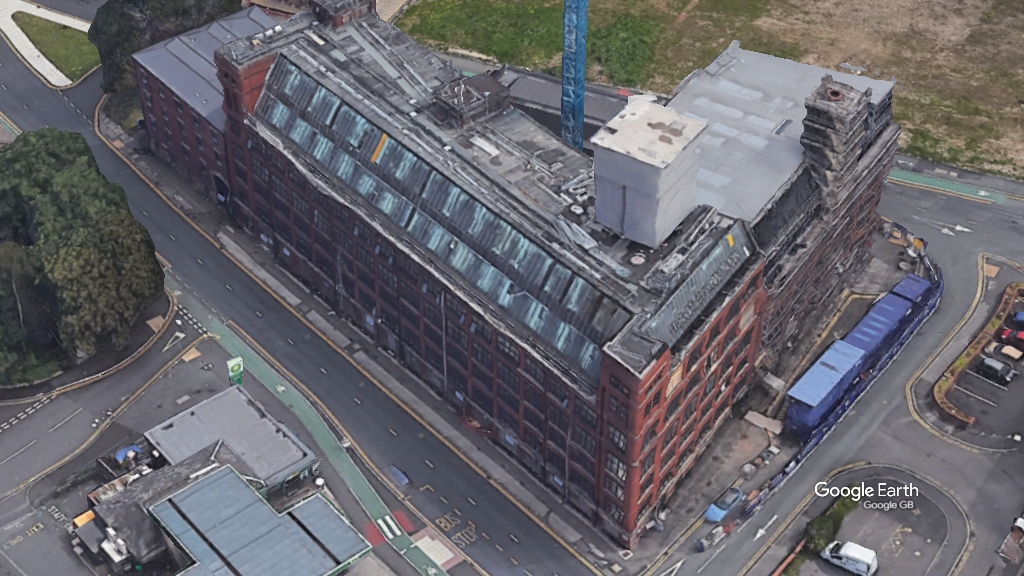ERDF on track as programme nears its end
The European Regional Development Fund for the North West has exceeded its spending target for 2014 which means money will not have to be returned to Brussels, despite delays to a number of projects.
An end-of-year snapshot provided to Place North West by the Birchwood office of the Department for Communities & Local Government, which oversees European funding in England, showed that the "entire £640m programme" for 2007-2013 has now been committed. Project managers have until June 2015 to spend money from the programme.
The snapshot stated: "This year's target was challenging due to slippage of expenditure on a number of projects."
No detail was given about the identity of the delayed projects or amount of spend that slipped. No one was available at DCLG to answer queries after the report was issued.
DCLG's selected highlights published in the snapshot paper claim the 2007-2013 programme funded 258 projects, through streams such as North West Fund for venture capital, the JESSICA urban development fund and superfast broadband programme being delivered by BT.
Superfast broadband could be one of the projects that is behind schedule. At the last meeting of the ERDF NW monitoring committee for which minutes are available, from May 2014, members expressed concern that there was "little confidence that BT can deliver across the North West within the timescales (June 2015)."
The chairman of the ERDF NW monitoring committee is David Read of DCLG; the deputy chairman is Sir Howard Bernstein, chief executive of Manchester City Council.
Read told the committee that "all local authorities [in the North West] are encountering the same problems when trying to get accurate performance and forecasts information…from BT."
The ERDF/BT superfast broadband programme aims to bring internet connections of "up to 30mBps" to over 95% of the UK by the end of 2017.
A spokesman for BT said: "Things have moved on apace since the May meeting. BT has invested more than £3bn in rolling out fibre broadband and it is now available to more than 21 million homes and businesses, this commercial rollout of fibre broadband covers around 66% of the UK. The series of Broadband Delivery UK contracts tendered through local government councils will take coverage to between 93% and 97% in the North West. And the recently announced Superfast Extension Programme will take it to even higher levels of coverage.
"The BDUK projects in the North West are on target and Openreach is confident of delivering all contracts.
"Openreach, the local network provider, has recognised the demand for high speed broadband and its importance to homes and businesses and has recruited an extra 2,400 engineers across the UK – more than 180 in the North West. On top of the existing BDUK contracts BT is also providing access to the fibre network by way of the Superfast Extension Programme in partnership with local councils."
On the JESSICA (Joint European Support for Sustainable Investment in City Areas) funds, the DCLG's year-end briefing paper said the £49m Evergreen fund for the North West outside Merseyside is now fully committed and Merseyside's £34m Chrysalis fund will be allocated by early 2015.
Proposals for new JESSICA funds capitalised by ERDF from the 2014-20 programme are being developed by Local Enterprise Partnerships for the five sub-regions of the North West, which will manage the next round of EU funding on the government's behalf.
The 2014-20 ERDF programme is currently working its way through the lengthy approval process for European funding. The draft programme was sent to commissioners in August 2014.
The next funding round will hand €3bn to England's 39 LEPs over seven years. The amount the English regions will receive is expected to be reduced due to greater allocation of funding to countries in Eastern Europe with weaker economies. The breakdown of funding will be decided by rules governing the use of European aid in three geographic categories:
- Less developed with gross domestic product per capita below 75% of the European Union average. The only such area in England is Cornwall and Isles of Scilly
- Transition areas with a GDP per capita between 75% and 90% of the European Union average. This includes some rural areas, industrial areas and northern cities. The areas are: Cumbria, Devon, East Yorkshire and North Lincolnshire, Lancashire. South Yorkshire, Shropshire and Staffs, Merseyside. Lincolnshire, Tess Valley and Durham.
- More developed with a GDP per capita above 90% of European Union average. The rest of England, the majority, falls into this category.
There are eight priority themes including helping small business, moving to a low carbon economy, sustainable transport and continuing to roll out superfast broadband
Recent projects funded from the 2007-13 programme include £3.4m of new pavements and roads in central Preston, with £1.39m of ERDF funds; Cumbria Business Growth Hub to provide businesses with free advice and support received £3.8m from ERDF to deliver 1,319 business assists by September 2015; some £23m of ERDF towards the £61m National Graphene Institute in Manchester, due to open in spring 2015; and £3.86m towards the £8m third building at Liverpool Science Park.




